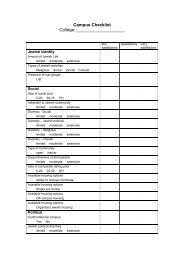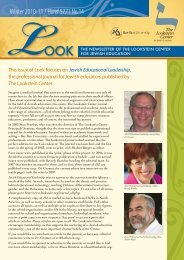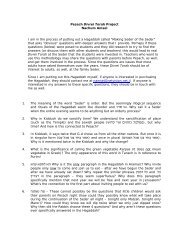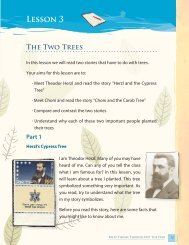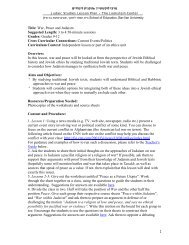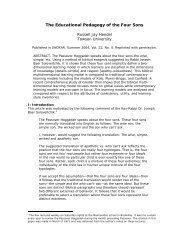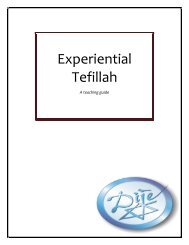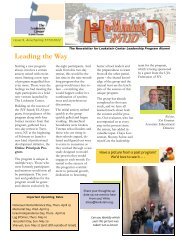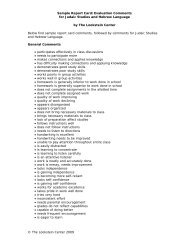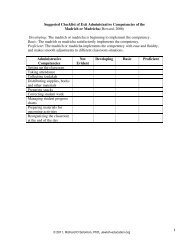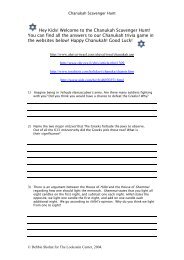FUNDAMENTAL CONCEPTS of the CLASSICAL HEBREW VERB
FUNDAMENTAL CONCEPTS of the CLASSICAL HEBREW VERB
FUNDAMENTAL CONCEPTS of the CLASSICAL HEBREW VERB
You also want an ePaper? Increase the reach of your titles
YUMPU automatically turns print PDFs into web optimized ePapers that Google loves.
When <strong>the</strong> time is in <strong>the</strong> future, I will be about to eat is not a form that anyone is normally likely to use - we<br />
have merely mentioned its <strong>the</strong>oretical existence to complete <strong>the</strong> pattern.<br />
Finally, a concurrent action, a continuous action I was eating, I am eating, I will be eating, is expressed by<br />
<strong>the</strong> participle preceded by <strong>the</strong> subject.<br />
This is strictly not a tense but a participle phrase; however we may convert it to a tense.<br />
...<br />
‘He appeared to him .... he sitting at <strong>the</strong> entrance’, which we would prefer to render as ‘while he was sitting<br />
at <strong>the</strong> entrance’.<br />
The verb ‘to be’ must sometimes be inserted when translating into English:<br />
... ‘Balak [being] king at that time, or ‘Now Balak was king at that time’ (‘was’ being a<br />
continuous tense and not a single action).<br />
וַיֵּרָא אֵלָיו<br />
וְהוּא יֹשֵׁ ב פֶּתַח הָאֹהֶל<br />
וּבָלָק<br />
מֶלֶךְ בָּעֵת הַהִוא<br />
Note that <strong>the</strong> subject is <strong>of</strong>ten put before <strong>the</strong> verb for contrast, or even (rarely) for emphasis. Also in poetry<br />
and in conversation <strong>the</strong> rules <strong>of</strong> word-order are not always obeyed. There are also o<strong>the</strong>r exceptions.



